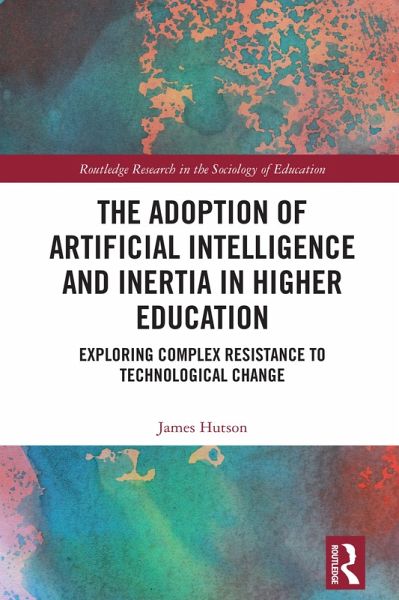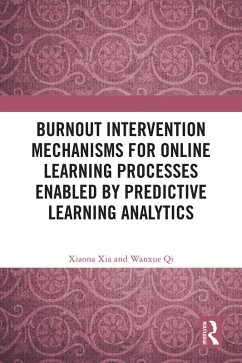
The Adoption of Artificial Intelligence and Inertia in Higher Education (eBook, PDF)
Exploring Complex Resistance to Technological Change
Versandkostenfrei!
Sofort per Download lieferbar
42,95 €
inkl. MwSt.
Weitere Ausgaben:

PAYBACK Punkte
21 °P sammeln!
This research monograph explores the complex resistance to integrating Artificial Intelligence (AI) within higher education institutions. Despite the significant potential of AI to enhance education, faculty adoption remains inconsistent and is often met with skepticism.This book investigates key factors contributing to this resistance, such as leadership deficits, funding barriers, cultural inertia, and faculty attitudes toward technological change. Drawing on qualitative and quantitative empirical data, case studies from U.S. and international institutions, and theoretical analysis, the book...
This research monograph explores the complex resistance to integrating Artificial Intelligence (AI) within higher education institutions. Despite the significant potential of AI to enhance education, faculty adoption remains inconsistent and is often met with skepticism.
This book investigates key factors contributing to this resistance, such as leadership deficits, funding barriers, cultural inertia, and faculty attitudes toward technological change. Drawing on qualitative and quantitative empirical data, case studies from U.S. and international institutions, and theoretical analysis, the book uncovers underlying concerns about job security and professional identity.
It points to actionable strategies for overcoming these barriers and will be relevant for scholars, researchers, advanced students, and educators grappling with issues navigating technological integration in academia and with interests in the sociology of education, educational technology, and higher education administration.
This book investigates key factors contributing to this resistance, such as leadership deficits, funding barriers, cultural inertia, and faculty attitudes toward technological change. Drawing on qualitative and quantitative empirical data, case studies from U.S. and international institutions, and theoretical analysis, the book uncovers underlying concerns about job security and professional identity.
It points to actionable strategies for overcoming these barriers and will be relevant for scholars, researchers, advanced students, and educators grappling with issues navigating technological integration in academia and with interests in the sociology of education, educational technology, and higher education administration.
Dieser Download kann aus rechtlichen Gründen nur mit Rechnungsadresse in A, B, BG, CY, CZ, D, DK, EW, E, FIN, F, GR, HR, H, IRL, I, LT, L, LR, M, NL, PL, P, R, S, SLO, SK ausgeliefert werden.













